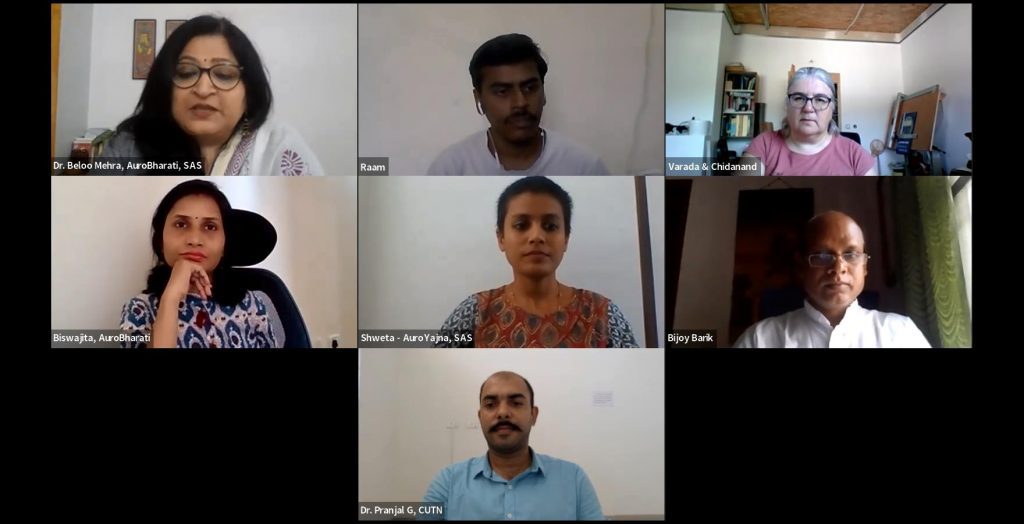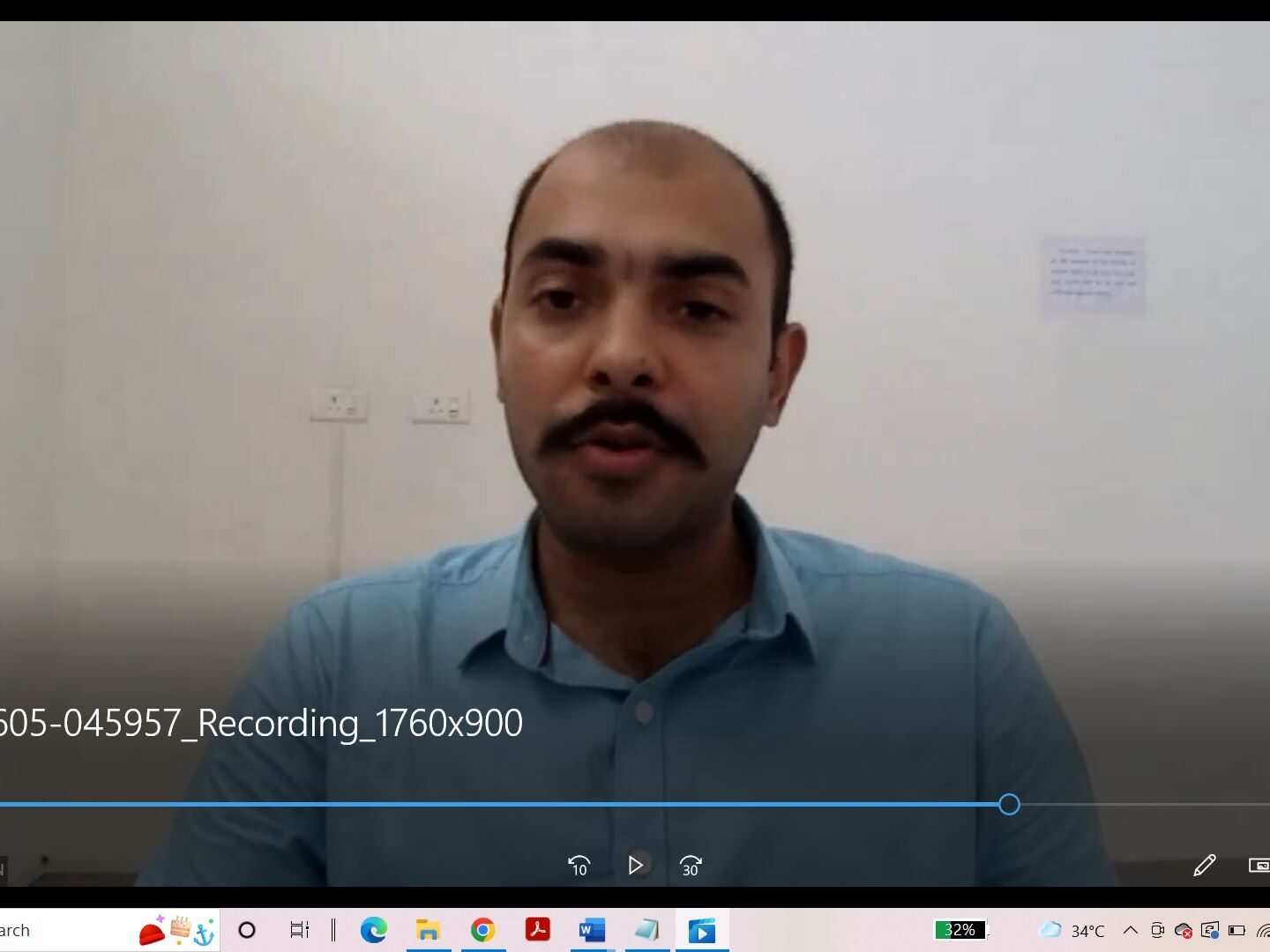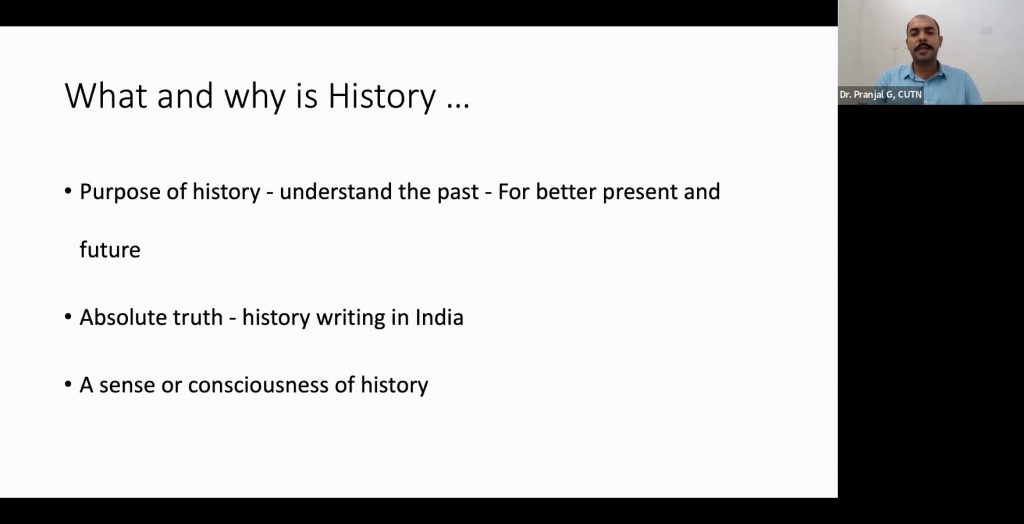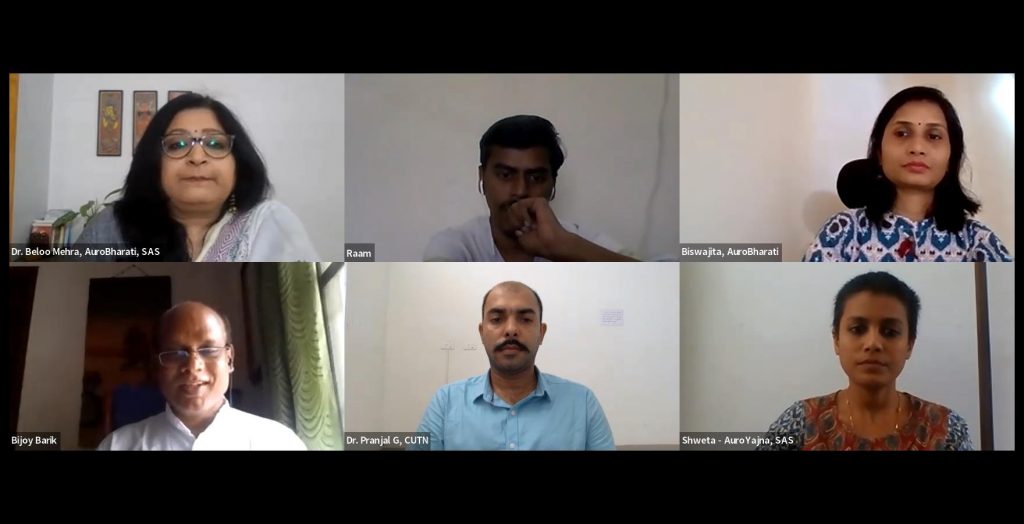Watch the full recording of the event HERE.
As part of our ongoing celebrations of Sri Aurobindo’s 150th Birth Anniversary (August 15, 2021 to August 15, 2022), we have been organising a series of Special Lectures organised under the Theme: ‘India – Our Mother.’
For the eighth lecture in the series, Dr. Pranjal Garg was invited to share some thoughts on a very interesting topic – ‘History or Itihasa?’
After a moment of silence invoking the Mother’s presence, the event opened with brief introductory remarks by Dr. Beloo Mehra of BhāratShakti. She reminded the audience that the topic compels us to ask the question – is there one way and one way only to look at a people’s past – through the lens of external events and happenings which can be verified through some sort of empirical inquiry? Or can we know our past through stories, legends, creative retellings of collective memories and more? Mr. Raamkumar of BhāratShakti introduced the speaker giving a brief background of his research interests in the area of Indian history.

What is the difference between history and the Indian term itihāsa, which is not merely history in the ordinary sense of the term, but much more? If the word itihāsa means – it happened thus, what does it really mean for us if we want to know about our past, about where we come from – which has shaped our present – where we are, and most importantly, which has a bearing on where we are moving, our future?
These questions and a few more were addressed in a most interesting manner by the speaker, Dr. Pranjal Garg. He started off by sharing a definition of historical tradition as given by Prof. Romila Thapar, an internationally acclaimed Indian historian. She is also a controversial figure, seen as a leading voice for the colonialists’ version of Indian history especially because over the last several decades a new awakening has been happening in Indian intellectual circles about the need to revisit and revise Indian historiography and get rid of the colonialist’s or a particular Marxist ideological view of Indian history. In this context, the topic taken up during the lecture became an important one.
Dr. Garg pointed out that even by going with the definition of historical tradition as given by Dr. Thapar, our itihāsa-s – specifically Ramayana and Mahabharata, more than qualify as valid accounts of history which help a people know their past in a way that also facilitates a clearer understanding of present and moving toward future. His detailed analysis of this point was an engaging and enlightening experience for most members in the audience.

Our guest speaker gradually brought the audience to see the significance of Sri Aurobindo’s view of the life-value of a culture and how a historical consciousness is an integral part of this vision or understanding.
He spoke about Sri Aurobindo’s account of the inner historical vision of the three broad stages through which Indian civilisation passed and explained how this view of India’s history is as authentic and more significant for our understanding of how we are evolving as a culture and civilisation and the future march that will help us fulfil our destiny as a nation.


A thought-provoking Q & A session followed the lecture. Questions asked were primarily along the lines of:
- What changes according to you should be done to impart the knowledge of history among current and future generations (as per the academic requirements)?
- What is your opinion on revising history, in the context of what is happening now in particular?
- Could you kindly enlighten us what is the current trends in historiography in India and your perception on the same?
Dr. Garg briefly addressed the questions. The audience members found the session highly engaging and inspiring. Here is some more feedback:
- The session provided a whole gamut of Indian historical transition through Sri Aurobindo’s eye, in brief. Most relevant points covered. Thank you very much.
- Thank you for this informative lecture.
Recording of the lecture can be accessed HERE.
About the speaker:
Dr. Pranjal Garg is an Assistant Professor in the Department of History at Central University of Tamil Nadu, Thiruvarur. He is an alum of Sri Aurobindo International Centre of Education, Pondicherry. After completing his Masters in Ancient Indian History, Culture and Archaeology, he went on to do his Doctoral thesis on the Harappan studies and the contemporary Chalcolithic cultures of western India.
He has taught previously at post-graduate level at C B L University, Bhiwani and at Maharshi Dayanand University, Rohtak at the department of History and Archaeology.
He is deeply interested in interweaving the different aspects of History with Indian culture and the lesser-known indigenous classical knowledge systems to bring forward more meaningful and relevant perspectives from a holistic approach into the mainstream Historical studies. His thrust of research is in ancient Indian culture, classical archaeology and archaeological sciences, Vedic and Indian philosophy and several different aspects of ancient Indian History.
